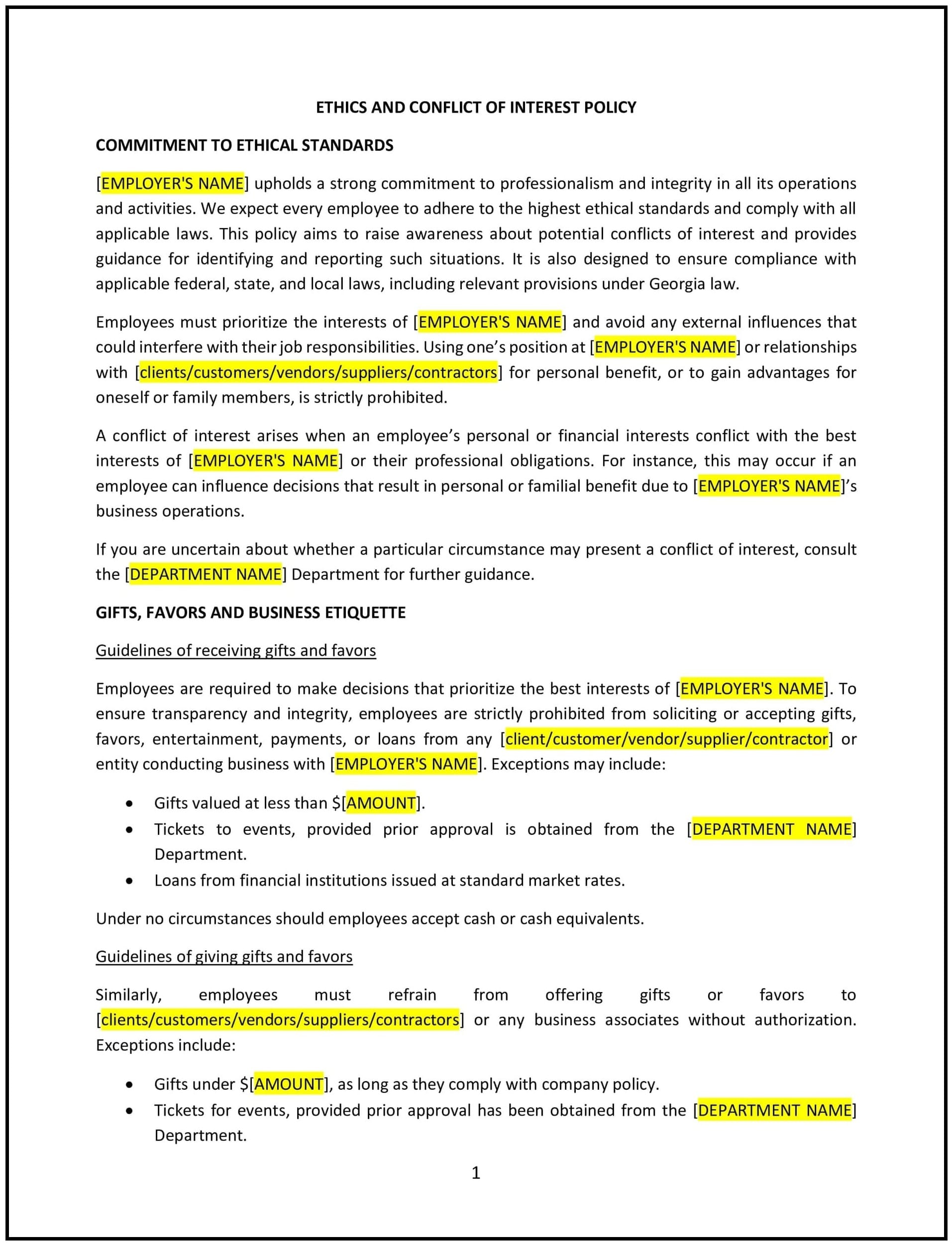Ethics and conflict of interest policy (Georgia): Free template
Got contracts to review? While you're here for policies, let Cobrief make contract review effortless—start your free review now.

Customize this template for free
Ethics and conflict of interest policy (Georgia)
This ethics and conflict of interest policy is designed to help Georgia businesses promote ethical behavior and address potential conflicts of interest in the workplace. The policy outlines expectations for professional conduct, procedures for identifying and resolving conflicts, and mechanisms for reporting unethical behavior.
By implementing this policy, businesses can foster integrity, accountability, and trust within their operations.
How to use this ethics and conflict of interest policy (Georgia)
- Define ethical standards: Clearly outline the principles of ethical behavior expected from employees, such as honesty, fairness, and respect for others.
- Identify conflicts of interest: Provide examples of situations that could result in a conflict of interest, such as personal relationships, financial interests, or outside employment.
- Establish disclosure requirements: Require employees to disclose potential conflicts of interest to their manager or HR department promptly.
- Create a resolution process: Outline steps for addressing disclosed conflicts, including evaluating the situation and determining appropriate actions to mitigate risks.
- Include reporting procedures: Provide a clear process for employees to report unethical behavior or unresolved conflicts, including options for anonymous reporting.
- Protect whistleblowers: Ensure employees who report ethical concerns or conflicts are protected from retaliation.
- Provide training: Offer regular training to employees on ethical standards, conflict resolution, and the importance of maintaining integrity in the workplace.
- Review and update regularly: Periodically review the policy to ensure it reflects changes in Georgia laws, workplace dynamics, or ethical challenges.
Benefits of using this ethics and conflict of interest policy (Georgia)
Implementing this policy provides several advantages for Georgia businesses:
- Promotes integrity: Clear ethical guidelines reinforce a culture of honesty and accountability.
- Reduces risks: Addressing conflicts of interest minimizes potential legal, financial, or reputational harm.
- Builds trust: Employees, clients, and stakeholders are more likely to trust a business that prioritizes ethical conduct.
- Encourages transparency: A defined disclosure process fosters openness and reduces ambiguity around conflicts.
- Reflects Georgia-specific considerations: Tailoring the policy to local business practices and cultural values ensures its relevance and effectiveness.
Tips for using this ethics and conflict of interest policy (Georgia)
- Lead by example: Encourage leaders and managers to model ethical behavior and address conflicts promptly.
- Communicate openly: Share the policy with employees regularly to reinforce its importance and expectations.
- Encourage disclosures: Create a supportive environment where employees feel comfortable disclosing potential conflicts.
- Monitor compliance: Regularly review conflict disclosures and ethical reports to ensure issues are resolved effectively.
- Adapt to changes: Update the policy as needed to address emerging ethical challenges or changes in Georgia laws.